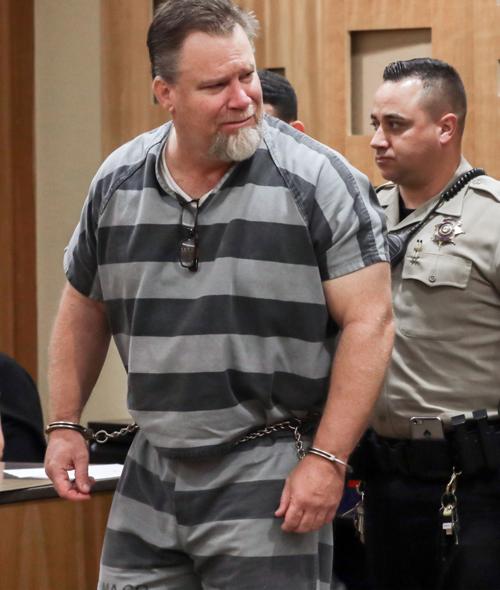The state of Arizona has spent $2.3 million to defend a former UA assistant track and field coach who admitted to assaulting a student-athlete — and the case is far from over.
Craig Carter was convicted by a Pima County jury last March of two counts of aggravated assault in connection with a May 2015 incident in his office at McKale Center. He admitted to campus police that he choked former UA thrower Baillie Gibson and threatened to cut her face with a box cutter. The two had been involved in a sexual relationship which Gibson says was not consensual.
Carter is currently serving five years in prison.
In November 2015, Gibson filed a lawsuit against Carter and the UA, saying that the school had knowledge of the illicit relationship nearly two years before the attack but failed to intervene. Because Carter was a state employee, his defense in the civil suit is being paid for by the Arizona Department of Administration’s Risk Management Division.
The Star asked for an interview with ADOA officials to discuss whether there are any policies in place to limit spending, or if risk management has the authority to limit billing or provide input regarding legal tactics being used in the case.
“The state provides a defense for state employees when acting within their official job capacity, however, we aren’t able to discuss ongoing litigation,” Megan Rose, ADOA’s assistant director of communications, said in an email response.
State Sen. David Bradley, whose district includes parts of Tucson, told the Star that he didn’t think the $2.3 million is a good use of taxpayer funds.
“We have calls into ADOA to find the governing rule or statute that’s in play here,” Bradley told the Star on Thursday.
All indications are that the trial — and the expenses — are going to continue at least into next year. Pima County Superior Court Judge Charles Harrington has yet to set a date for a trial-setting conference. Last month, he set a Dec. 12 deadline to file motions in the case.
Seventeen people have already been deposed in connection with Gibson’s case against Carter and the UA. At least 30 depositions requested by the UA’s lawyers have yet to be completed; those witnesses are located across the country, according to Pima County Superior Court records. Attorneys have not yet interviewed any expert witnesses, who can be costly.
In the meantime, the bills continue to mount. As of Dec. 31, lawyers from the Tucson firm Munger, Chadwick and Denker had billed $1.44 million to defend Carter in the suit, according to ADOA billing totals obtained by the Star through a public-records request. Munger, Chadwick and Denker have billed between $2,175 to $76,572 per month, records show. John Munger, one of the firm’s partners, served on the Arizona Board of Regents from 1992 to 2000.
Those aren’t the only attorneys involved in defending the case. In October 2017, the UA opted to hire private lawyers instead of allowing the Arizona Attorney General’s Office to continue to defend the school in the case at a reduced rate. Those attorneys, from the Tucson firm Rusing, Lopez and Lizardi, billed $813,949 through Nov. 12 for its defense of the UA, according to ADOA data. The last three months of billings have accounted for nearly half the total amount, with $342,678 of it coming between September and November.
Former UA athletic director Greg Byrne was initially named as a defendant in the suit and hired his own lawyers. The state paid attorneys from Thorpe Shwer $87,063 for work performed on Byrne’s behalf between August 2017 and November 2018, ADOA data shows. Byrne was dropped from the civil lawsuit in December 2017.
The Star reached out to eight members of the Arizona Board of Regents last month to ask if they had the ability to intervene or provide input on the course of the case. None of them responded directly. Sarah Harper, ABOR’s vice president of communications, then issued a statement on the regents’ behalf. It read: “The State of Arizona’s Department of Administration determines whether individual university employees are entitled to state coverage of legal costs and fees in civil actions. The terms and conditions around those decisions, including continuation of the coverage, are ultimately within the sole control and authority of the ADOA, not the Arizona Board of Regents.
“The Arizona Board of Regents takes all litigation that is brought against it and the universities for which it is responsible very seriously and regularly assesses the legal claims that are made, with the assistance and advice of legal counsel,” Harper said. “In this, as in all other matters, the Board takes actions and makes decisions that it believes to be in the best interests of the citizens of the State of Arizona, and the universities and students whom it serves.”
Harper said the regents couldn’t comment further, citing pending litigation.





